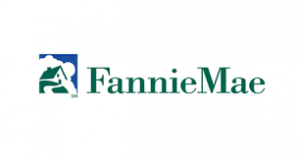Fannie Mae Update
Filed under: Fannie Mae
 The Federal National Mortgage Association, better known as Fannie Mae, recently made a variety of major changes to its lending policy.
The Federal National Mortgage Association, better known as Fannie Mae, recently made a variety of major changes to its lending policy.
One of these is related to unreimbursed employee business expenses.
For a borrower who is qualified using base pay, bonus, overtime, or commission income less than 25% of the borrower’s annual employment income, here are the changes:
- Unreimbursed employee business expenses are not required to be analyzed or deducted from the borrower’s qualifying income, or added to monthly liabilities. This will apply regardless of whether unreimbursed employee business expenses are identified on tax returns (IRS Form 2106) or tax transcripts received from IRS.
- Union dues and other voluntary deductions identified on the borrower’s paystub do not need to be deducted from the borrower’s income or treated as a liability.
- For borrowers who earn commission income that is 25% or more of the borrower’s annual employment income, unreimbursed employee business expenses must be deducted from gross commission income regardless of the length of time that the borrower has filed that expense with the IRS.
- The exception to this is if the expense is an actual automobile lease or loan payment.
Another change focuses on tip income.
- Tip income is allowed to be included in qualifying income if the lender can verify that the borrower has received the income for the last two years.
- The borrower may need to report additional tip income to the IRS using Form 4137 if the full amount of the tip income earned by the borrower was not reported by the employer.
Also, Fannie Mae will now permit an IRS “Wage and Income Transcript” (W-2 Transcript) in lieu of the actual W-2 forms.
In addition, another change focuses on the conversion of principal residence.
Fannie Mae is eliminating the requirements specifically associated with the conversion of a principal residence to a second home or investment property, which means the 30% equity rule is no longer in effect. Standard rental income and financial reserve requirements apply when the borrower converts his or her current principal residence to an investment property as follows:
For departing residences converting to investment:
- 75% gross rental income can be used
- A fully executed lease agreement and proof of deposit into the borrower’s account must be provided
- The borrower must also meet all reserve requirements for investment transactions
For departing residences converting to a second home:
- Both PITI payments must be included in the ratios
- The borrower must also meet all reserve requirements for second home transactions
One final change centers on stocks, bonds, and mutual funds.
- 100% of the vested value of the asset is allowed when determining available reserves
- The lender must document that the value of the asset is at least 20% more than the funds needed for the borrower’s down payment and closing costs
- Non-vested assets are not eligible for down payment, closing costs, or reserves
If you have any questions about this or anything in the mortgage industry, please give me a call so we can discuss what is on your mind.

 Franklin Loan Center | NMLS 237653
Licensed by the Department of Financial Protection and Innovation under the California Residential Mortgage Lending Act, 4131316
Franklin Loan Center | NMLS 237653
Licensed by the Department of Financial Protection and Innovation under the California Residential Mortgage Lending Act, 4131316